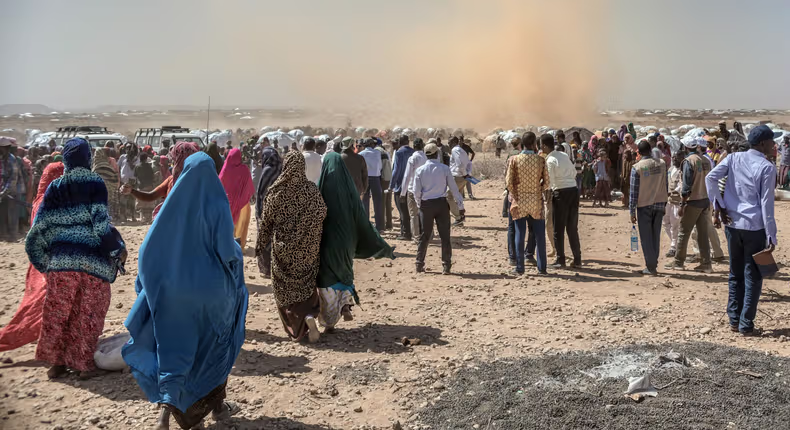Uganda is facing a critical humanitarian challenge with a significant influx of refugees, particularly from Sudan, driven by ongoing conflicts and climate-related challenges in neighboring countries. Here are the key aspects of the situation and the responses being undertaken:
1. **Refugee Influx**: Since the beginning of 2024, Uganda has welcomed over 33,000 new arrivals from Sudan alone. This includes 19,000 individuals who have settled in Kampala, highlighting the scale of displacement and the strain on local resources.
2. **Broader Trends**: Uganda is also receiving approximately 2,500 refugees weekly from neighboring countries like the Democratic Republic of the Congo (DRC) and South Sudan. These influxes are driven by persistent conflicts and environmental factors, contributing to the overall pressure on Uganda’s refugee response capabilities.
3. **Humanitarian Impact**: The continuous arrival of refugees has placed immense pressure on Uganda’s resources and its robust refugee protection and response model. Essential services, particularly in health and education, are facing severe shortages due to funding gaps and increased demand.
4. **Health Sector**: The health sector, critical for both refugees and host communities, has been severely affected. Shortages in medical supplies and staff reductions have exacerbated challenges, with outbreaks of diseases like conjunctivitis further straining resources.
5. **Education**: Schools in refugee-hosting areas are overcrowded, facing shortages of teachers and educational materials. Given that children make up a significant portion of the refugee population, ensuring continued access to education is crucial to prevent a lost generation.
6. **Protection Services**: Delays in refugee registration and integration processes due to logistical challenges have hindered refugees’ access to basic services and rights, complicating their transition into host communities.
7. **International Advocacy**: Recognizing the urgency of the situation, UNHCR and Ugandan officials have engaged in international advocacy efforts. Visits to key partners in Europe aim to secure additional funding and support for refugee and host community needs.
8. **Funding Shortfalls**: Despite Uganda’s progressive refugee policies, such as allowing refugees freedom of movement and access to urban areas for self-sufficiency, the Uganda Country Refugee Response Plan (UCRRP) for 2024 faces severe funding shortages. Only 13 percent of the required $858 million has been secured, jeopardizing ongoing support initiatives.
9. **Challenges and Responses**: Uganda remains committed to its pledges made at the 2023 Global Refugee Forum, focusing on socio-economic inclusion and self-reliance for refugees. However, the critical need for international support to bridge funding gaps and sustain humanitarian efforts remains paramount.
10. **Impact on Refugees**: Reports indicate some refugees leaving Uganda for neighboring countries with better support systems, highlighting the precarious nature of refugee settlements and the urgent need for sustained international aid.
In summary, while Uganda’s progressive refugee policies have set a positive example, the current funding challenges threaten to undermine these efforts. International solidarity and increased financial support are crucial to uphold humanitarian standards and provide adequate assistance to both refugees and host communities in Uganda.
